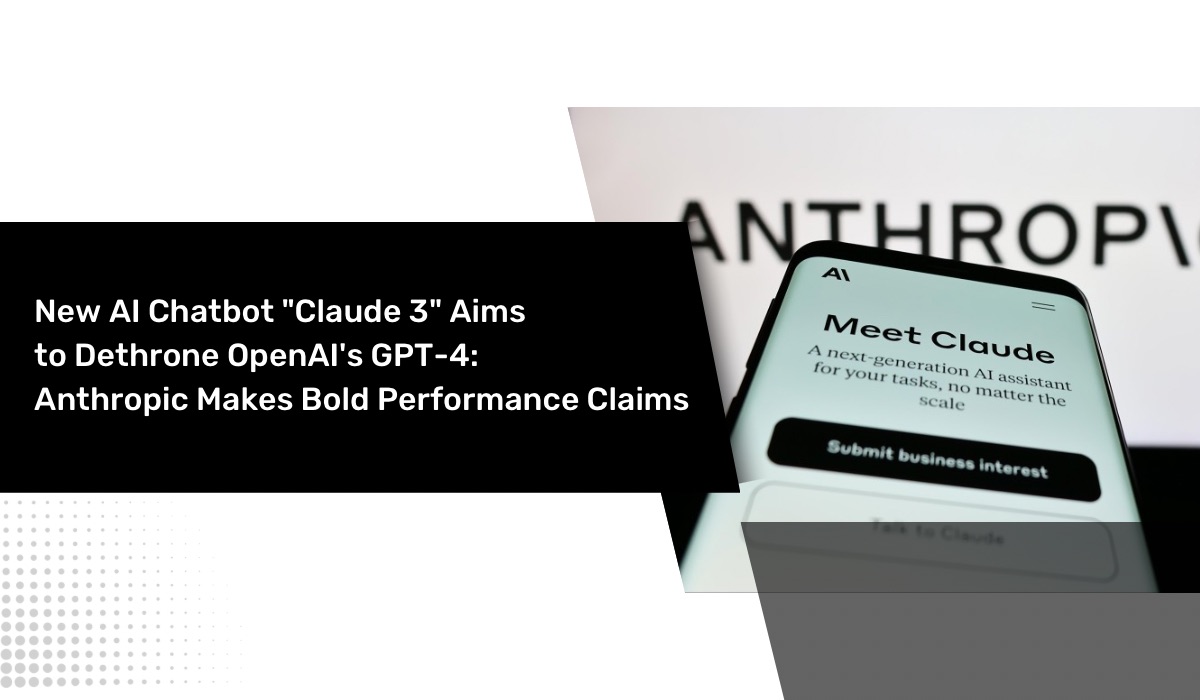
 March 6, 2024
March 6, 2024 [email protected]
[email protected]
Anthropic, a burgeoning AI startup with substantial backing from Google and substantial venture capital investments, unveiled the latest iteration of its GenAI technology, Claude. The company boldly asserts that its new AI chatbot outperforms OpenAI’s highly acclaimed GPT-4 in terms of functionality and capability.Dubbed Claude 3, Anthropic's newest GenAI iteration comprises a suite of models, including Claude 3 Haiku, Claude 3 Sonnet, and the pinnacle of its development, Claude 3 Opus. Anthropic proudly claims that these models exhibit heightened analytical and predictive capabilities compared to predecessors like ChatGPT, GPT-4, and Google’s Gemini 1.0 Ultra. Notably, Claude 3 represents Anthropic's inaugural foray into multimodal AI, enabling analysis of both text and images, akin to select variants of GPT-4 and Gemini.
One distinguishing feature of Claude 3 is its ability to analyze multiple images simultaneously, allowing for comparative analysis—a step beyond some of its competitors. However, Anthropic has implemented constraints, prohibiting image identification of individuals and acknowledging limitations in processing low-quality images or tasks involving spatial reasoning.Anthropic underscores Claude 3's enhancements in handling multi-step instructions, structured output generation, and multilingual conversations, promising users a more refined and engaging interaction experience. Moreover, the company plans to implement features enabling source citation for user queries, enhancing transparency and verifiability.
Despite its advancements, Anthropic acknowledges ongoing challenges such as biases and limitations in multilingual fluency. Nonetheless, the company pledges continuous updates and improvements to Claude 3, underscoring its commitment to innovation and evolution in the AI landscape.With Opus and Sonnet already available for deployment via various platforms, including Amazon's Bedrock and Google's Vertex AI, Anthropic positions itself as a formidable contender in the AI market. As the company charts its ambitious trajectory, including aspirations for AI self-teaching algorithms, the industry eagerly anticipates further developments and potential collaborations shaping the future of artificial intelligence.